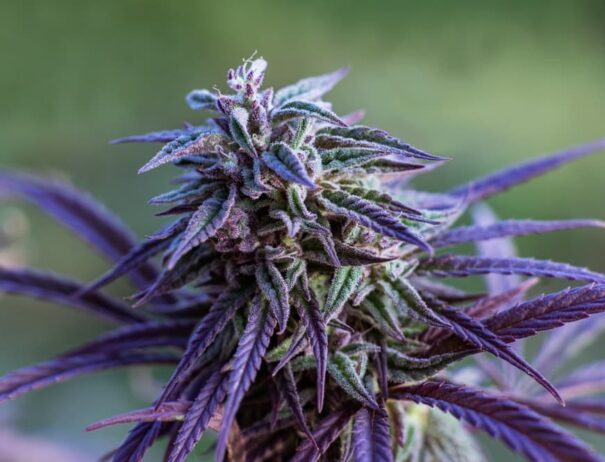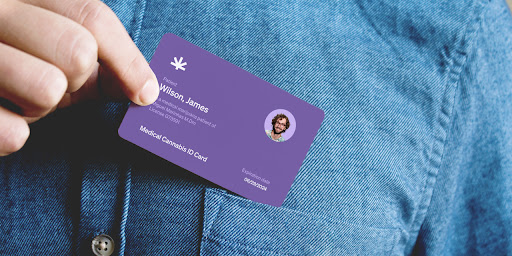The Unexpected Health Benefits of Cannabis
When you think of marijuana, your brain probably doesn’t automatically go to nutrition. But you might be surprised at just how much nutritional value the cannabis plant has to offer you. Keep reading to learn about cannabis nutrition.
Let’s take a step back and first start by breaking down what marijuana is. You’ve heard of two types of the cannabis plant—hemp and marijuana. Hemp is legal in all 50 states because, by definition, it always has less than 0.3% of tetrahydrocannabinol (THC), so it can’t get you high. Marijuana always has more than 0.3% THC, so it can get you high.
THC is the main distinction between the two. It’s one of over 100 healing compounds, known as phytocannabinoids or cannabinoids, found in the cannabis plant. It’s also the one that’s responsible for the psychoactive effects of marijuana. The other main cannabinoid in the plant is cannabidiol (CBD). Unlike THC, CBD isn’t intoxicating, but it does still deliver therapeutic benefits and effects.
What we need to recognize is that the plant and its compounds are so much more than what they can or can’t do to alter our state of mind. Strong and versatile, cannabis can be used to make fuel, textiles, and concrete, among other things.1 And, as if we needed another reason to love it, it’s also a valuable source of nutrition for us.
What Does Nutrition Mean?
Basically, nutrition is a balanced intake of food and nourishment.2 Our bodies cannot produce everything they need to survive on their own, so we have to get some nutrients from what we consume.
An example would be to look at amino acids. Amino acids combine to form proteins. They help with everything from our growth to repair and digestion, and while we do create some on our own, we don’t create all the ones we need. So, we have to make sure that what we consume gives us those other amino acids.3 Fortunately, a major benefit of marijuana and its products, like CBD oil, is that they’re an easy and effective means to give us just that.
CBD and Amino Acids
One of the main components of CBD nutrition is amino acids. Proving itself once again, weed contains all 20 amino acids, making it a one-stop shop for our amino needs.4 That means reaching for a CBD product like a sublingual oil or even infusing your food with cannabis is an effective way to consume the essential amino acids our bodies can’t make on their own, helping to keep us protected and balanced.
Essential Amino Acids Found in Cannabis
- Histidine
- Isoleucine
- Leucine
- Lysine
- Methionine
- Phenylalanine
- Threonine
- Tryptophan
- Valine
CBD and Vitamins
Like amino acids, our bodies can only produce a couple of vitamins even though we need more than two. It’s important to make sure your diet contains the other vitamins you need, and cannabis is a valuable nutritional resource for those, with the added benefit of some vital minerals.
Extracted CBD oil contains vitamins A, C, and E, all of which we need but can’t produce.5 Plus, it has vitamins B6 and B12 along with other B-complex vitamins like riboflavin, thiamin, and niacin that play important roles in our energy metabolism.6
CBD nutrition doesn’t stop there, though. You’ll also find necessary minerals like zinc, potassium, calcium, phosphorus, iron, and magnesium. The iron found in CBD can be particularly useful for vegetarians or vegans needing an animal-free iron source to keep hemoglobin levels intact and assist with oxygen transportation.4
CBD and Your Endocannabinoid System
Just as all those amino acids, vitamins, and minerals found in marijuana support our body, cannabis’ own phytonutrients nourish our body as well. In fact, we have a special system called the Endocannabinoid System (ECS) that’s designed specifically to work with cannabinoids.
Your ECS’s goal is to maintain bodily homeostasis. It helps in everything from regulating the oil production on your face to fostering your immune system. Your body produces its own cannabinoids, called endocannabinoids, that stimulate the receptors in your ECS to help maintain that balance. However, many people have endocannabinoid deficiencies that can manifest as specific issues. For example, research suggests that stimulating the ECS with phytocannabinoids may help to reduce symptoms in ailments like irritable bowel syndrome.7
Using CBD or consuming cannabis in some way nourishes your ECS through its phytocannabinoids. Those cannabinoids stimulate our ECS just as our cannabinoids do, so they can help our bodies find an equilibrium where we’re experiencing a deficiency. The added value of CBD nutrition is that if you’re using a broad- or full-spectrum product, you’re also ingesting other phytonutrients like terpenes (flavor compounds), flavonoids (pigment and flavor compounds), and other cannabinoids that all work together to collectively stimulate your ECS in a team effort known as the “entourage effect.”8
CBD Nutrition Key Takeaways
Modern diets can make it difficult for us to get the nutrition our bodies need, but weed can help.
- Nutrition is a balanced intake of food and nourishment.2 Our body cannot produce all the vitamins, minerals, and nutrients it needs to survive. So, we have to look to our diet for the other nutrients we need.
- Marijuana contains all 20 amino acids, nine of which we can’t produce on our own.4 Using a CBD product like a sublingual oil or even infusing your food with cannabis is an effective way to consume the essential amino acids our bodies can’t make on their own.
- Extracted CBD oil contains vitamins A, C, and E, all of which we need but can’t produce.5 Plus, it has vitamins B6 and B12 along with other B-complex vitamins like riboflavin, thiamin, and niacin that play important roles in our energy metabolism.6
- We have a special system called the Endocannabinoid System (ECS) that’s designed to maintain bodily homeostasis specifically by using cannabinoids. Many people have endocannabinoid deficiencies, but using CBD or consuming cannabis in some way nourishes your ECS with phytocannabinoids, helping to balance those deficiencies.
SOURCES
- https://nationalhempassociation.org/hemp-hurds-the-inside-story/
- https://www.merriam-webster.com/dictionary/nutrition
- https://medlineplus.gov/ency/article/002222.htm#:~:text=Essential%20amino%20acids%20cannot%20be,threonine%2C%20tryptophan%2C%20and%20valine
- https://www.healtheuropa.eu/benefits-CBD-oil-vegan-athletes/92514/#:~:text=CBD%20is%20a%20protein%20source,riboflavin%2C%20niacin%2C%20and%20thiamine
- https://www.medicalm—-uanainc.com/4-reasons-make-CBD-hemp-oil-part-day/
- https://www.ncbi.nlm.nih.gov/pmc/articles/PMC6073544/#:~:text=The%20water%2Dsoluble%20B%20vitamins,part%20of%20the%20energy%20metabolism
- https://www.ncbi.nlm.nih.gov/pmc/articles/PMC7186328/
- https://www.leafly.com/news/c—-bis-101/c—-bis-entourage-effect-why-THC-and-CBD-only-medicines-arent-g

Get Your Free eBook!
Download our FREE resource, The Ultimate Edibles Guidebook, full of recipes, infusion tips and everything you need to make your first batch of edibles today!



